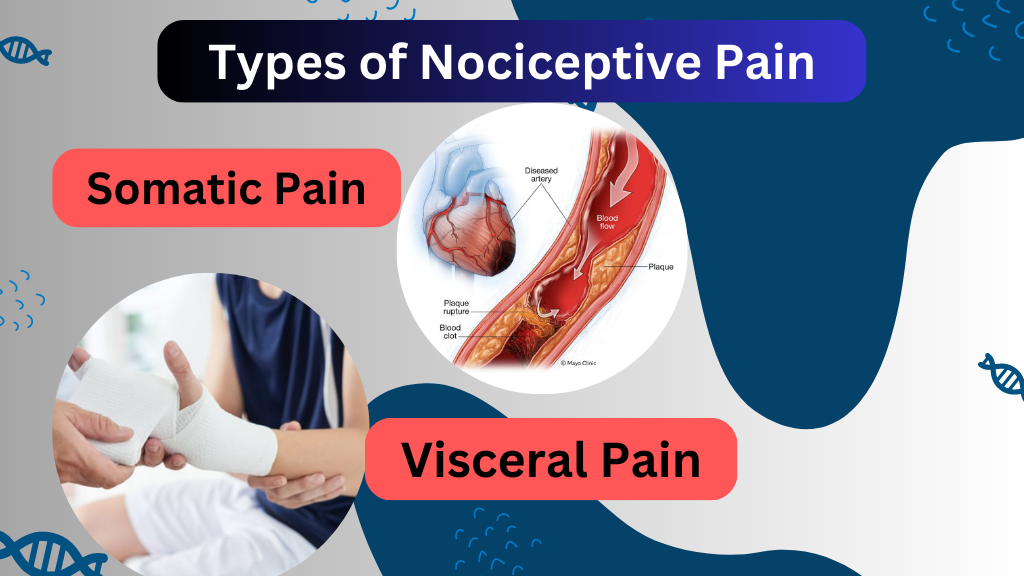Nociceptive Pain- Definition, Causes, Symptoms & Best Treatment

Pain severs as a crucial warning system and it is a universal human experience, pain alerts us from potential harm or injury. There are many types of pain like nociceptive pain, Neuropathic Pain, Acute Pain, and Chronic Pain.
In this article, we will learn all about nociceptive pain such as its definition, types, causes, treatment options, and many more.
What is Nociceptive Pain?
It is a type of pain that activate the nociceptors, which are the sensory nerve endings in the skin, muscles, and internal organs. These nerves are exquisitely sensitive to different noxious stimuli such as heat, cold, pressure, or chemicals released during tissue damage.
When these types of nerves are triggered, they send electrical signals through the nervous system to the brain. Through this process, our body gets alerts for potential danger and our body starts giving protective responses, that are safe from further harm.
The Causes of Nociceptive Pain?
A wide range of injuries causes this pain. Some causes are:

1.) Acute Injuries:
This pain happens after accidents falls, and sports-related injuries, where tissue damage occurs.
2.) Inflammatory Conditions:
Conditions like arthritis, tendonitis, and bursitis involve inflammation, which can activate nociceptors that leads to this type of pain.
3.) Due to Infections:
Infections in tissues or organs can cause pain.
4.) Surgical Procedures:
Nociceptive pain can occur after surgeries.
5.) Ischemia:
It reduces the blood flow to tissues and causes ischemic pain.
The Types of Nociceptive Pain?
Nociceptive pain is a type of pain, and it is also further categorized into two types such as:

1.) Somatic Pain:
This pain originated from the activation of nociceptors in the skin, muscles, joints, bones, and ligaments. Somatic pain is described as a sharp, localized type of pain. Examples of this pain are cuts and fractures.
2.) Visceral Pain:
This pain arises from the stimulation of nociceptors within the internal organs, such as the stomach, liver, or intestines. It is often called a deep to a dull ache. Kidney stones and gastrointestinal disorders can be the cause of visceral pain.
What are the best treatment options?
The treatment of this pain depends on its underlying causes. However some best standard treatment options, such as:
- Medications, Such as Ibuprofen 200mg & Ibuprofen 400mg
- Physical Therapy
- R.I.C.E Method (Rest, Ice, Compression, and Elevation)
- Nerve Blocks
Nociceptive pain is a protective mechanism of our body. It serves as a warning signal to take necessary actions to avoid further harm. Understanding its different types, helps us to manage it in a better way.

Leave a Comment